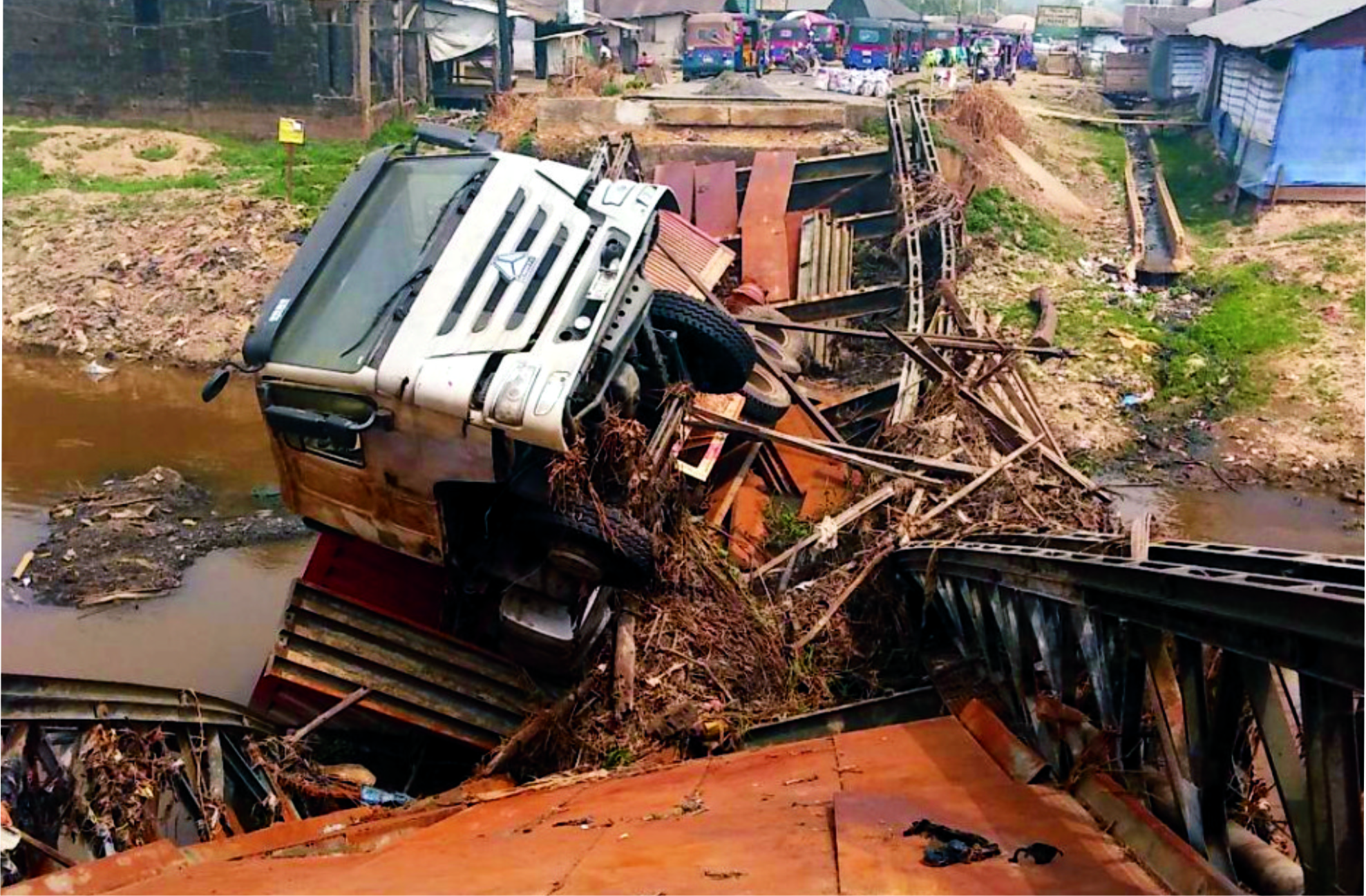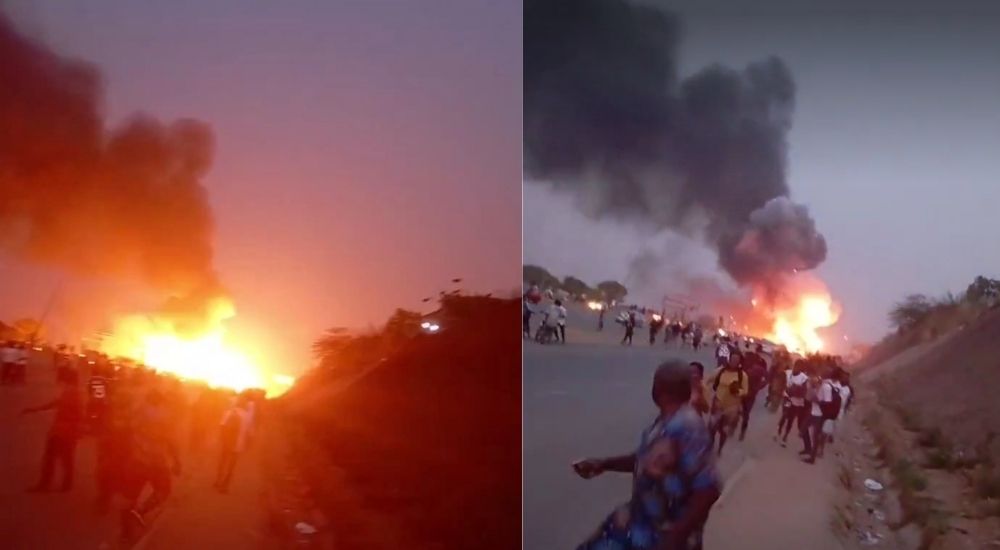Featured
Bestiality Of Power: The Moorish Tragedy (3)

The Moors, also called Moricos, were a race of Arab origin who lived in North-West Africa, with some of them invading and settling in Spain between the 8th century AD and 1492, the peak of their tragedy. Those of them who remained in Spain were subjected to stiff persecution and conditions such as being forced to be Christians, forbidden to speak or write Arabic, own any book written in Arabic and non-observance of their traditional ceremonies or festivals. Like the Jews, the Moors suffered severe tragedies and persecutions, but strangely they always grew prosperous through hard work, wherever they settled.
The issue of the travails and tragedies of the Moors over many centuries was raised at an International Conference, with a suggestion that the “Arab spring” and global terrorism associated with Islamic militancy have something to do with centuries-old root-causes. No doubt, the Moslem World has sad stories to tell about global oppression and persecution especially during the Dark Ages. The Christian World had actually referred to the founder of Islam as a false prophet, with available historical records of horrors and tragedies arising from persecution. The Punic Wars, destruction of Carthage and the Crusades serve as examples of hostilities.
No matter the origin and places of settlement of the Moors, they were resilient, hardworking and a shrewd race, capable of turning abilities into assets. They were people who could suffer severe pains, tortures and agonies in silence. They were Moslems and the Spanish Inquisition was their source of torment but the rich ones among them paid bribes to officials of the Inquisition to escape from the tortures which heretics were subjected to, so that they would recant and accept the Christian faith.
Historical records tell us that in 1563, Guerrero, Archbishop of Granada “had visited Pope Pius IV whom he told that his flock in Granada called themselves Christians but were such in name only. “The King of Spain Philip was begged to “Children between the ages of three and fifteen being taken from their parents to be brought up in the Christian Faith.” The Moors prepared to fight for their freedom and on 23rd December 1568, there was a revolt which was crushed in a bestial manner.
The King of Spain sent his half-half-brother Don John to command the army which dealt most cruelly with the Moors. History records say “men were massacred by the thousands, and the women and children captured that they might be sold as slaves”. The battle of Galera was bestial, bloody and callous, with Don John ordering that “not a living soul in Galera should be spared”. We are told that “for this gallant exploit, the Pope hailed Don John as the Champion of Christendom!”
The suffering of the Moors who could not be massacred became too much for the conscience of Don John to bear, that arrangements were made to relocate them in different places, with families forcefully separated. Like the Jews, the Moors who were allowed to settle here and there soon began to prosper, to the envy of their tormentors. Obviously, the hatred of the Moors was based more on their prosperity and resilience than on differences in their religions.
Like the Waldenese in France, the Moors, despite flogging and tortures, held on to their convictions but merely pretended to accept Christianity. In the various new settlements, complaints brought against them were that they never went to war, pretended to be Christians but were devoted solely to their work. The persistent persecution and plight of the Moors were such that some of them became bandits and mercenaries. An example of such mercenary was Shakespeare’s Othello, the Moor of Venice. Similarly, the role of his personal assistant lago (his Ancient) depicts the degree of contempt the Moors were held in Europe.
There was a time when Spain was dominated by great Islamic scholars until about 1608 when Philip III put forward some schemes for ridding Spain of the troublesome Moors and create an all-Catholic Spain. Despite their travails, tortures and the anguish of splitting families, the Moors did not become heartbroken, even though many left Spain as destitutes. Expulsion of the Moors was a state policy which lasted for centuries, with attendant acts of bestiality. When Philip III introduced alcabala, a tax levied on sales and purchase like modern day Value-Added-Tax (VAT), the prime targets were the Jews and the Moors.
The Archbishop of Ribera was eager that the Moors should be expelled from Spain, since it was impossible to kill them all. Those who were clamouring for the extinction of the Moors did what they could in their own private ways to cook up complaints and bear false witnesses against the Moors, including charges of conversing in Arabic in their privacies.
Apart from the battle of Galera where the most atrocious bestiality and destructions were committed, other centres of butchery and massacre of the Moors included Granada and Valencia. In the district of Aragon, some of the Moors were allowed to continue with their industrious lives because of the level of prosperity which they created for the Spaniards. Even though six percent of the Moors were allowed to remain, those sent to Balary for deportation to various places were given most callous and bestial treatment. Many died.
Any Nigerian reading this true historical summary of the fate of the Moors in Spain would wonder what the motive of bringing up this matter could be, and may even doubt the veracity of the facts stated here. Some international conferences where studies in the bestiality of power feature as themes use such opportunities as a mirror for understanding current global events. Would any reader dismiss the axiom that history repeats itself from era to era, and that those who cannot learn the lessons of history are doomed to repeat historical calamities!
For example, global terrorism associated with Islamic militarism, including Boko Haran etc, may have more explanations than what is commonly known. Is it not believable that the “bread” we cast upon the sea can return to us after many forgotten seasons? Whether the proverbial bread returns in the form of cake or unpleasant plague, the truth is that majority of humans can be described as grossly myopic. The Organisation of Islamic Conference (OIC) has records that are quite scary.
Bright Amirize
Featured
Bring Your Wealth Of Experience To Governance, Ibas Tasks New SSG

The Sole Administrator of Rivers State, Vice Admiral Ibok Ete Ekwe Ibas (rtd), has charged the new Secretary to the State Government (SSG), Prof Ibibia Lucky Worika to bring his wealth of experience to bear in governance of the State.
Vice Admiral Ibas (rtd) gave the charge shortly after swearing in the new SSG at the executive chambers of Government House on Wednesday night.
The Administrator who congratulated Prof Worika on his appointment said the choice was not merely an administrative decision but a statement of intent.
Vice Admiral Ibas (rtd) explained that the new SSG has an unparallel expertise in law, policy and international governance, which align perfectly with the mission to restore law, order, integrity and public trust in Rivers State.
He said: “To our new SSG, the task ahead is onerous, but your track record leaves no doubt in our minds that you will prove your mettle. Rivers State needs your intellect, grit and unweaving dedication. Together, we will write a new chapter of progress for this great state.
“Prof Worika’s role will be critical in driving this vision, ensuring that every policy, every decision and every action is in consonance with this administration’s mandate to restore law and order, stabilize the polity and to create the necessary conditions for the restoration of democratic institutions and representations.”
Vice Admiral Ibas (rtd) pointed to his maiden address to Rivers people wherein he emphasised that his administration will be committed to delivering an effective governance that is anchored on transparency, accountability and service.
He therefore, enjoined the new SSG to brace up to the demands of his office, and offer his best service as required while also working cooperatively with civil servants.
Vice Admiral Ibas (rtd) said: “You have no time to settle down. You must roll up your sleeves and get to work with the team.
“Our civil servants with whom we will work closely to run this administration are critical stakeholders and we must work with them to ensure that the state continues to function effectively during this administration.
“To the Permanent Secretaries and civil servants as a whole, once more I will ask your kind cooperation and support as we work to achieve our objectives at this time,” he added.
Featured
I Am One Of You, Sole Administrator Tells Rivers People …Warns Against Violence, Crude Oil Sabotage

The Sole Administrator of Rivers State, Retired Vice Admiral Ibok-Ete Ibas (rtd), has assured residents that he is not in the State as a partisan actor or political competitor but as a stabilising force to restore governance and order.
In a state broadcast yesterday, Ibas, who assumed duty at Government House, Port Harcourt, emphasised his commitment to protecting civil liberties and ensuring the safety of all citizens.
However, he issued a stern warning against crude oil sabotage and violence, urging residents to resist any temptation to return to past hostilities.
“For decades, I have dedicated my life to the service of our great nation—first as the 20th indigenous Chief of Naval Staff and later as Nigeria’s High Commissioner to Ghana. I answered this call out of the need for peace in Nigeria, and most importantly, in Rivers State,” Ibas stated.
Describing the prolonged political impasse as a major setback to governance and democracy, he acknowledged the hardships faced by families and businesses due to the prevailing uncertainty.
“As a son of the Niger Delta, I am one of you. I feel the weight of this crisis on families, businesses, and the future of our people,” he said.
Ibas commended President Bola Tinubu’s decisive action in declaring a state of emergency in Rivers State, stressing that it was a necessary move to restore stability and revive economic activities.
“My mandate is clear: restore law and order, ensure stability, and create an enabling environment for economic growth. But this mission requires collective support from all stakeholders, regardless of political affiliation or ethnicity,” he stated.
He discouraged attacks on oil infrastructure, reminding residents of the devastating environmental and economic consequences of such actions.
“The Niger Delta has moved beyond the destruction of oil facilities. We must resist the temptation to return to those ugly days,” he cautioned.
While pledging to uphold civil liberties and the rule of law, the Sole Administrator warned that lawlessness and violence would not be tolerated.
“We will not act arbitrarily, but we will not hesitate to deal decisively with anyone who threatens the peace and stability of Rivers State,” he declared.
Ibas revealed that he had concluded a State Security Council meeting where strategic measures were outlined to de-escalate tensions and prevent further conflict.
Expressing gratitude to President Tinubu for entrusting him with the responsibility, he also acknowledged the National Assembly for approving the emergency declaration.
“I will work closely with the national leadership under the guidance of the President. I am optimistic that Rivers State will emerge stronger and greater,” he concluded.
Featured
Abuja Truck Explosion Death Toll Rises To 10 …As Another Truck Crashes On Same Spot

The Federal Capital Territory Emergency Management Department has confirmed that 10 persons have died in the truck explosion that occurred near Karu bridge, along the Abuja-Keffi Expressway, on Wednesday.
The FEMD’s Head of Public Affairs, Nkechi Isa, confirmed the numbers in a statement, yesterday.
The Acting Director General of the Emergency Department, Abdulrahman Mohammed, had earlier confirmed that eight persons had died as of yesterday morning, with five confirmed dead on the scene, and four others burnt beyond recognition.
““Five people were taken dead from the scene yesterday (Wednesday). Out of the people that were injured, one died, making six. Then this morning (yesterday), when I asked my people to go round, they discovered that two had already died again, making eight. Four of them from yesterday were burnt beyond recognition.”, he explained.
However, in her statement, Isa said the Head, Forecasting Response and Mitigation of FEMD, Mr Mark Nyam, said eight bodies were deposited at the Karu Hospital Morgue, one body at the Asokoro Distinct Hospital Morgue while another body was deposited at the National Hospital.
He added that some victims had been referred to the Gwagwalada Teaching Hospital, Federal Medical Centre, Keffi, and Cedercrest Hospital Abuja for proper care.
Part of the statement reads, “The FCT Emergency Management Department FEMD can confirm that 10 persons lost their lives to the truck explosion that occurred at Karu bridge along Abuja / Keffi expressway.
“The Head Forecasting Response and Mitigation of FEMD, Mr Mark Nyam said eight bodies were deposited at the Karu Hospital Morgue, one body at the Asokoro Distinct Hospital Morgue while another body was deposited at the National Hospital.”
He informed that over 30 persons suffered various degrees of burns.
“Some of the victims have been referred to Gwagwalada Teaching Hospital, Federal Medical Centre,Keffi and Cedercrest Hospital Abuja for proper care,” he said.
Isa also stated that no fewer than 10 vehicles were burnt during the incident, adding that the FEMD boss after a visit to the incident scene, appealed to motorists to observe traffic rules and regulations.
He also cautioned against reckless driving, dangerous overtaking and poor maintenance of vehicles, while urging FCT residents to always use the 112 emergency toll free number in the event of an emergency.
Meanwhile, barely 24 hours after the incident, another fertiliser-laden truck has collapsed on the same spot.
The Tide learnt that the incidence occurred at about 3:54pm yesterday.
The Head of Public Affairs of the FCT Emergency Management Department, Nkechi Isa, confirmed the accident in a statement, stating that the truck collided with a Hijet and a dump truck, adding that no life was lost.
She cautioned road users to drive with caution as the Federal Road Safety Corps was making efforts to tow away the affected vehicles, to avoid traffic built up.
“Another accident has occurred under Karu bridge along the Abuja-Keffi Expressway. Thankfully, no life was lost to the incident. Our Search and Rescue say the accident occurred when a truck laden with fertilizer ran into a Hijet and a dump truck also known as tipper.
“Motorists are advised to drive with caution as the Federal Road Safety Corps is taking steps to tow away the affected vehicles in order to avoid traffic built up,” the statement read.
Meanwhile, several videos showed some persons trying to clear the fertiliser bags from the fallen truck to ease traffic.
-

 News5 days ago
News5 days agoPresidency disclaims 2027 campaign billboards
-

 News5 days ago
News5 days agoJAMB Releases 2025 Mock Exam Results
-

 News5 days ago
News5 days agoFalana Urges Youth To Reclaim Nigeria From Older Generation
-

 News5 days ago
News5 days agoWithdraw bill to regulate bloggers, SERAP tells Akpabio, Abbas
-

 News5 days ago
News5 days agoNigeria’s gas sector attracts over $5bn in investments
-

 News5 days ago
News5 days agoAdesina advocates Africa-led ‘Marshall Plan’ on conflict-hit regions
-

 News5 days ago
News5 days agoFederal High Court judges begin 2 weeks Easter vacation
-

 News5 days ago
News5 days agoIbas Tasks Youths On Peace, Rivers Dev









